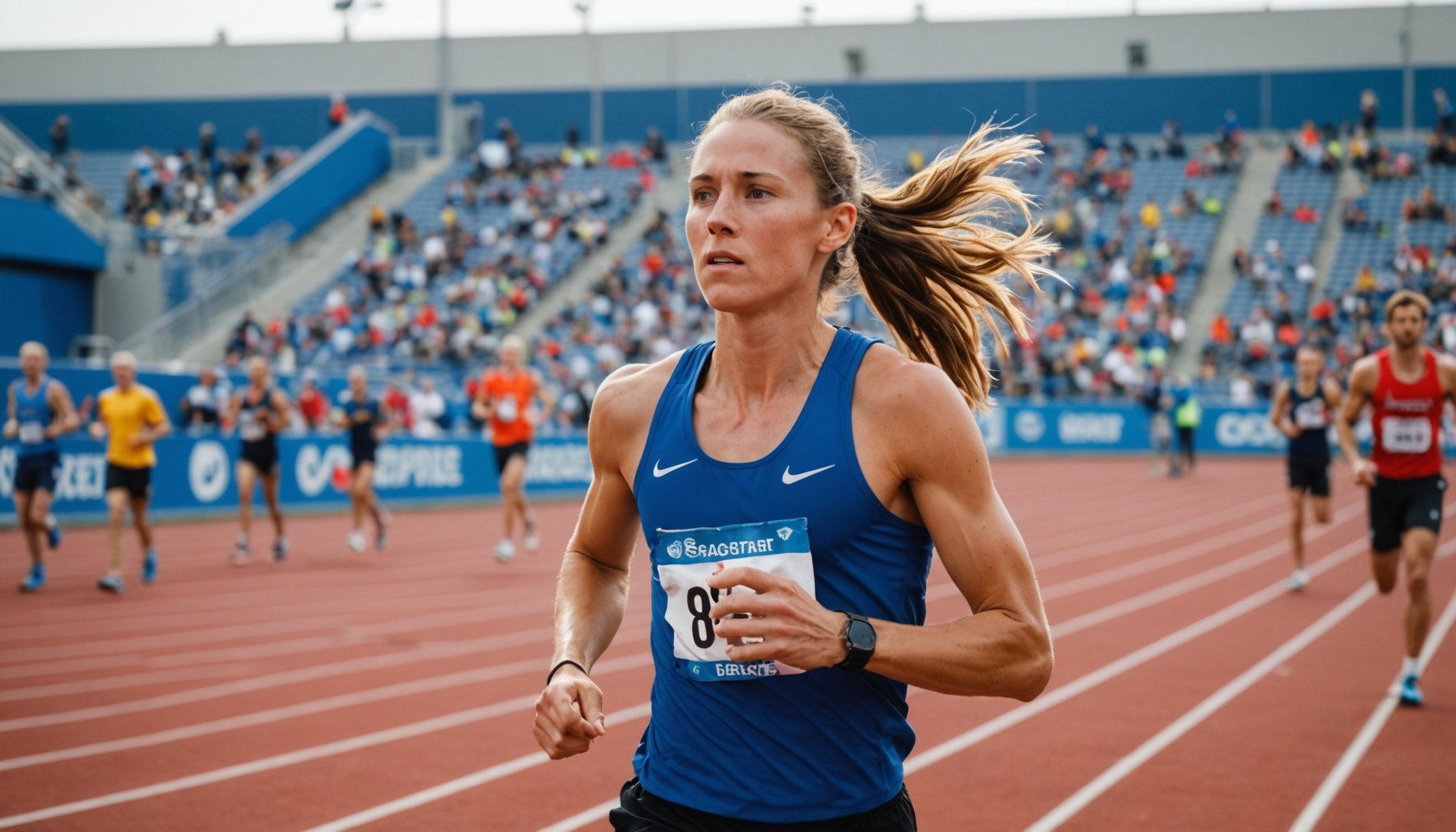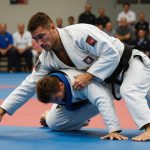Top Strategies to Stay Hydrated During Outdoor Track Events: Your Ultimate Guide to Preventing Dehydration
Staying hydrated is crucial for athletes, especially during intense outdoor track events. Dehydration can significantly impact performance, lead to serious health issues, and even force athletes to withdraw from competitions. Here’s a comprehensive guide to help you understand the importance of hydration, how to assess your needs, and the best strategies to stay hydrated.
Understanding Dehydration and Its Impact on Performance
Dehydration occurs when your body loses more fluids than it takes in, causing an imbalance in the body’s water and electrolyte levels. This can happen quickly during intense physical activities, especially in hot and humid environments.
Also to discover : Unlocking Mental Strength: Essential Psychological Strategies for Building Resilience in Professional Judo Athletes
“Dehydration can lead to a decrease in athletic performance, increased risk of heat-related illnesses, and even severe health complications,” notes Dr. Susan Kleiner, a sports nutritionist and author of several books on sports nutrition[3].
Here are some key signs of dehydration to watch out for:
In parallel : Top Strategies for Evaluating Performance Gains in Competitive Rowing
- Dry mouth and throat
- Dark yellow or amber-colored urine
- Fatigue and weakness
- Headaches and dizziness
- Muscle cramps
Assessing Your Hydration Needs
To stay hydrated effectively, you need to understand your individual hydration needs. Here are a few factors to consider:
Sweat Rate
Your sweat rate is a critical indicator of how much fluid you need to replace during exercise. This can vary significantly from person to person and is influenced by factors such as the intensity of the exercise, the environment, and individual physiological differences.
“A general rule of thumb is to weigh yourself before and after exercise to estimate fluid loss. For every pound lost, you should aim to drink 16-20 ounces of fluid,” advises a sports medicine scholar on Google Scholar.
Body Mass
Your body mass also plays a role in determining your hydration needs. Generally, athletes with a higher body mass may need more fluids due to their larger body surface area.
Environmental Conditions
The temperature, humidity, and wind speed can all impact how much you sweat and thus how much fluid you need to replace.
Choosing the Right Hydration Tools
When it comes to staying hydrated during track events, the right equipment can make a significant difference.
Water vs. Sports Drinks
For short to moderate-duration exercises, water is usually sufficient. However, for longer or more intense activities, sports drinks can be beneficial due to their electrolyte content.
| Hydration Option | Benefits | When to Use |
|---|---|---|
| Water | Easy to digest, inexpensive | Short to moderate-duration exercises |
| Sports Drinks | Replenishes electrolytes (sodium, potassium) | Long-duration or high-intensity exercises, in hot and humid conditions |
| Electrolyte Tablets | Convenient, customizable electrolyte levels | For athletes who prefer a lighter taste or need specific electrolyte levels |
Hydration Belts vs. Backpacks
The choice between a hydration belt and a backpack depends on the distance and your personal preferences.
- Hydration Belts: Ideal for shorter distances, these belts are lightweight and allow for easy access to water without the bulk.
- Hydration Backpacks: Better suited for longer distances, these provide more storage for water and other essentials like snacks and extra clothing[2].
Practical Strategies for Hydration
Here are some practical tips to help you stay hydrated during outdoor track events:
Pre-Exercise Hydration
- Drink water or a sports drink 1-2 hours before the event to ensure your body is well-hydrated.
- Monitor your urine color; it should be pale yellow or clear.
During Exercise Hydration
- Drink fluids at regular intervals, such as every 15-20 minutes.
- Use a hydration plan based on your sweat rate and the environmental conditions.
- Consume sports drinks if you are engaging in endurance exercise lasting more than 60 minutes to replenish sodium and other electrolytes.
Post-Exercise Hydration
- Rehydrate within 30 minutes after the event to help your body recover.
- Aim to drink 16-24 ounces of fluid for every pound of body weight lost during exercise.
Additional Tips for Field Athletes
For field athletes, hydration is just as crucial as it is for track athletes. Here are some additional tips:
Monitor Your Body Water
- Keep track of your body weight before and after training sessions to estimate fluid loss.
- Adjust your fluid intake based on the intensity and duration of your training.
Eat Hydrating Foods
- Include foods with high water content in your diet, such as fruits, vegetables, and broth-based soups.
- Avoid caffeinated and alcoholic beverages that can act as diuretics.
Use Electrolyte-Rich Foods
- Consume foods rich in electrolytes like bananas (potassium), avocados (potassium), and nuts (magnesium).
- Consider electrolyte supplements if you are engaging in prolonged or intense activities.
Real-Life Examples and Anecdotes
Many athletes have learned the hard way about the importance of hydration. For instance, Sarah Marquis, an ultra-marathon runner, emphasizes the critical role of hydration in her training and races:
“During my long runs, I make sure to drink water and sports drinks regularly. I also monitor my urine color to ensure I’m not dehydrating. It’s a simple but effective way to maintain peak performance,” she shared in an interview on the “Ultra Talk By Arnaud Manzanini” podcast[1].
Staying hydrated is a cornerstone of athletic performance and overall health. By understanding your individual hydration needs, choosing the right hydration tools, and following practical hydration strategies, you can optimize your performance and prevent dehydration.
Remember, hydration is not just about drinking water; it’s about maintaining the delicate balance of fluids and electrolytes in your body. Whether you’re a seasoned athlete or just starting out, making hydration a priority will help you perform better, recover faster, and stay healthy.
So next time you’re gearing up for a track event, don’t forget to drink water, monitor your body’s signs, and adjust your hydration plan accordingly. Your body—and your performance—will thank you.






